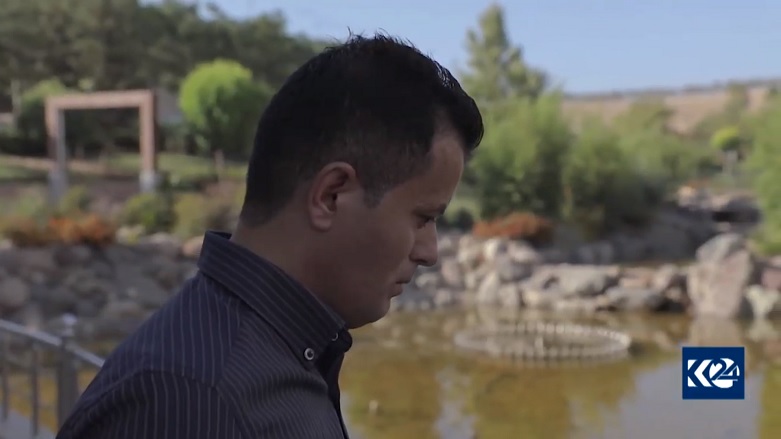Former drug addict overcomes addiction, inspires others to follow in Kurdistan Region

ERBIL (Kurdistan 24) – The decision to quit abusing drugs changed the life of one resident of the Kurdistan Region in such a way as to cause him to try to support others to stop as well.
Dilgash Shukri, a former drug addict who lost his family to his habit, spoke to Kurdistan 24 for the occasion of June 26, United Nations' International Day Against Drug Abuse and Illicit Trafficking.
"I had been using drugs for 15 years before I decided to quit, to start a new life, and to turn over a new leaf," he said, adding that what got him hooked in the first place was the "bad accompany" he began to be influenced by, "which, for me painted a very positive and cool picture of using narcotics."
Following his decision to quit drugs, and being clean now for six years, Shukri decided to help others struggling with drug addiction through participation in local anti-addiction programs and speaking to addicts directly.
"Quitting drugs is not impossible. It, however, requires a firm decision, strong support, and a strong will," adding that "one of the best ways that help is getting busy with a job or any kind of work."
He added that the awareness of the public on the risks of recreational drug use is extremely low, stressing the “need for awareness-raising efforts from the government, media, and private sectors as well.
Shukri explained that "there are several types of narcotic substances" being used in the Kurdistan Region, "but the most common of them that are used by the youth nowadays are heroin, crystal, hashish, and opium (Taryak),"
It should be noted that there is often confusion about the term "crystal" since it is commonly used as the local name for two different highly-addictive drugs. One is methamphetamine, known in much of the world as crystal meth, but it can also refer to high-purity street-level heroin, sometimes called kerack.
Shukri explained that the majority of the drugs that pass through the Kurdistan Region are smuggled through its border-crossings, mostly with Iran, and the first target is the youths of the region and poses a great security risk to the region.
Kurdish and Iraqi authorities often intercept shipments of drugs passing mainly through the provinces of Basra, Diyala, Erbil, and Sulaimani, specifically in the towns and villages connecting the country with Iran and Turkey.
Read More: Kurdistan Region confiscates over 20 kg of illegal drugs being smuggled through Erbil
Local anti-drug organizations and experts have warned that drug abuse and trafficking are on the rise and, as a result, the Kurdistan Regional Government (KRG) has intensified its efforts in the past two years to combat the illegal trade.
The sale or consumption of such drugs are strictly prohibited in the Kurdistan Region and Iraq.
Editing by John J. Catherine
Additional reporting by Masoud Mohammed
